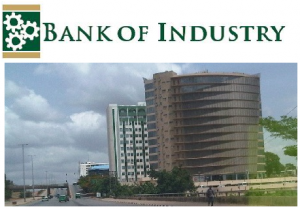#EndBadGovernance Protests Cost SMEs N400bn in Revenue, Market Penetration

The national protest tagged #EndBadGovernance which started on Thursday, 1st of August, 2024, had resulted in revenue loss for Small and Medium Enterprises (SMEs)productivity and market penetration.
The National Association of Small Business Owners of Nigeria (ASBON) and the National Association of Small Scale Industrialists (NASSI), therefore, expressed concerns over the protest, citing low market penetration and estimated loss of revenue.
The stakeholders expressed worries, noting that, the ongoing protest could affect productivity and inflict an estimated loss of N400 billion on the economy.
SMEs and business stakeholders have said, the ongoing protest may bring more apprehension and may likely lead to a fallout of low market penetration on businesses, property owners and particularly on business holdings.
Speaking on this development, the national president Association of Small Business Owners of Nigeria (ASBON) Dr Femi Egbesola said, the ongoing #EndbadGovernance protest, if not properly addressed, would spiral on business activities and market transactions thereby leading to a bigger problem that can’t contain.
He said, that although the protesters are lawfully engaging in their civil rights to demand better living conditions, he urged the government to address the economic fallouts affecting the state of the economy.
Egbesola said the current inflation and exchange rate had created a precarious economy for manufacturers, industrialists and SMEs in the country even as he said multinationals were exiting from the country because of the market forces beyond their control.
He, however, urged the government to administer the right economic policy to tame inflation and regulate price control for business activities to operate seamlessly.
The national vice president of the Nigerian Association of Small-Scale Industrialists, Segun Kuti-George, said the fear of arson from the EndSARS protest still haunts Nigerian business owners who almost lost their factories.
Our factories were nearly torched and we would have been without businesses, Kuti-George recounted the joint experiences of business owners in the EndSARS protest.
In addition to the Nigerian political class, which has appealed to the sensibilities of protesters calling for calm and security agencies, which have warned against violence, business stakeholders have stated their desire for peaceful demonstrations.
According to the NASSI Vice President, more Nigerians would restrict their movements on the day of the planned protests, leading to a drop in foot traffic, which means a slower business day.
‘People will want to be cautious. They will be reluctant to come out on that day,’ Kuti-George remarked, reckoning that some employers may ask their staff to work from home.
Also, a development economist, Rotimi Oyelere, pointed out that, there is a loss of output and income when protests force workers to stop working, adding that, protests of a nationwide magnitude could have a multiplier effect on daily wage earners.
“There will be a micro impact in immediate income loss for households, and businesses, then a macro impact that will affect general output and on a national aspect. It could get out of control and lead to indirect loss if there is a need to restore any destroyed property,” he added.
The economist recommended more transparency between the people and the state, noting that, a deterioration of trust helped ignite the brewing social unrest in the country.
On his part, the chief executive officer of CPPE, Dr Muda Yusuf, suggested that the protesters consider that over 90 per cent of employed Nigerians are in the informal sector.
“Employees in this space (informal sector) depend on daily income and any disruption to their economic activities beyond 24 hours could snowball into major social unrest. This underlines the country’s vulnerability to prolonged protests,” he said.
He recommended, among other things, that the duration of the protests possibly be a single day, as ‘experience has shown that the chances of protests degenerating into chaos and anarchy increase with the duration of the protests.’
An earlier analysis from the Centre for the Promotion of Private Enterprise predicted that the proposed nationwide protests pose grave dangers for an economy that is already in a very fragile state.
CPPE, in a statement, claimed that, if the protests are not properly managed, they could affect earnings and incur an estimated daily loss of N400 billion.








